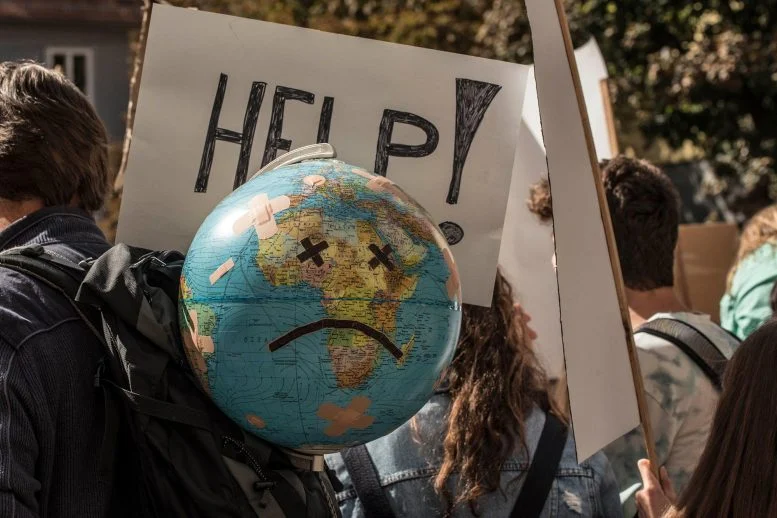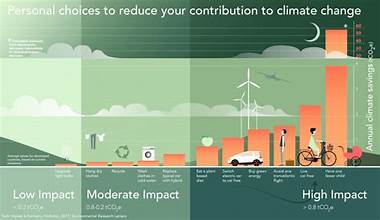Ecoanxiety might presage shifts in lifestyle choice that lead to lower birth rates and lower economic aspirations as a society first learns to live with environmental crises.
Can nature and climate anxieties become lead indicators of future social behavior the same way in which consumer sentiment predicts purchasing and investment?

The recommendation comes in the Cell Press journal One Earth, by Griffith University’s Professor Emeritus Ralf Buckley, in a preview to an article led by Professor Thomas Pienkowski in the UK.
The Economic and Health Effects of Anxiety
Professor Buckley said that the global burden of Disease Study, which is an international study conducted across 2019, demonstrated anxiety and depression were pervasive and deteriorating.
“Economic costs are up to 16% of global GDP, with 19 days per year on average lost for every person worldwide,” Professor Buckley said.
“There are many causes, and these include the current climate, biodiversity, and livelihood crises.
Eco-Anxiety and Social Determinants
“Professor Pienkowski’s article points out that health-sector responses such as counseling and chemotherapies address only symptoms, not underlying social determinants.
“Anxiety and its economic costs will therefore continue to rise until we can manage significant changes in global economic and political systems.”
Professor Buckley said that we could use current types and intensities of eco-anxiety to measure people’s expectations of planetary futures.
Lifestyle Choices and Eco-Anxiety
“Higher anxieties may mean that more people adopt ‘lie-flat’ lifestyles, with fewer children and lower financial ambitions,” he said.
“Lie-flat social changes at large scale are just what is needed to reduce human impacts on the Earth, before it is incapable of supporting its still-growing human population.”
Professor Buckley indicated one should track changes in the different types of eco-anxiety and match them with lifestyle choices to predict what changes were likely to come across the billions of people on the planet.
An opinion article entitled ‘Immediate economic significance of nature, climate and livelihood anxieties’ has been published in One Earth.
Knowing the implications of eco-anxiety forces one to look at some of the possible implications this feeling may have on different dimensions of society. For instance, high levels of feelings related to eco-anxiety can make people more likely to lead a sustainable lifestyle: able to reduce energy consumption, adhere to a plant-based diet, or sustain green businesses. This kind of behavior is a function of personal concerns but contributes to more significant environmental preservation.
More than this, however, eco-anxiety reaches further into the choices made among groups and communities. In other words, communities and governments are increasingly pressed to come up with policies that are to curb environmental degradation and climatic changes. These are propelled at least in part by anxiety from people and demanding that action should be taken to avert them. On this count, the shift shall be emphasized on the growing realization of environmental problems as existential threats that should be urgently and cooperatively dealt with.
Not only does eco-anxiety have something to do with lifestyle choices or policy implications, but also with economic sectors. Companies begin to move to the rhythm of their customers’ ‘greener’ tastes, who already fostered an enhanced sensitivity to environmental sustainability. It did not come out of the blue, having mirrored the changing values and expectations of corporate social responsibility and sustainability within society.
The academic community is also on the front line in terms of improving the understanding and response to challenges posed by eco-anxiety. Researching mental health, environmental psychology, and sustainable development is very important in tailoring ways of easing eco-anxiety and building resilience amid environmental crises. Through the integration of these multiple disciplines, researchers will be in a good position to provide insight into how best individuals, communities, and societies can cope with and respond effectively to eco-anxiety.
Looking ahead, tackling eco-anxiety requires an integrated approach that considers psychological support, policy intervention, education-based initiatives, and community engagement. Only then can societies begin to channel the potential for eco-anxiety to create a more sustainable and more equal future for all—once a means of building resilience while empowering meaningful action has been identified.
Anxiety over the ecosystem would not only affect individual behavior and societal responses; it would also crisscross with these larger global challenges, including population growth and resource consumption. As populations continue to grow and natural resources become more strained, the pressure heightens on addressing environmental concerns. Eco-anxiety could spur such debates as policies related to population control and resource management strategies that move the world toward human needs being harmoniously balanced with the preservation of the environment.
The effects from eco-anxiety are not limited to purely environmental spheres but extend into public health and well-being. With the increased concerns for climate change, ecological degradation, and other environmental issues, the level of stress increases, which acts as one of the incubating variables for mental health problems such as anxiety and depression. These mental health impacts call for integrated approaches that bring mental well-being to the fore alongside environmental sustainability.
Eco-anxiety within educational systems encourages reviews of the curriculum and the establishment of pedagogies that focus on environmental literacy and resilience-building competencies. In that regard, the role of a teacher is critical to arming future generations with relevant knowledge and tools necessary not only to navigate the uncertain environmental future but also to work toward sustainable practices. Thus, environmental stewardship at an early age would enable students to become change agents in their communities.
The media and communication platforms play a very significant role in shaping the discourses and perceptions associated with eco-anxiety. Responsible journalism and communicative strategies may prove extremely useful in raising awareness about environmental issues and encouraging informed public engagement with mobilized collective action. From the perspective of amplifying voices from science, activism, and affected communities, such discourses driven by the media would influence policy agendas toward sustainable development.
Anxiety that gazes at nature—a complex relationship—epitomizes the interactions between concerns for the environment, mental health effects, societal reactions, and educational opportunity. Only by first recognizing eco-anxiety as unfinished business for humankind and then making it a driver of positive change toward sustainable living will an individual or society be able to harness it. Two important steps toward addressing the challenges brought about by eco-anxiety and seeking to drive a path toward environmental resilience and well-being lie in current and future generations: embracing interdisciplinary approaches and building collaboration across sectors.
Reference: “Immediate economic significance of nature, climate and livelihood anxieties” 19 July 2024, One Earth.
DOI: 10.1016/j.oneear.2024.06.004
Source: https://scitechdaily.com/
Read More Science News – Click Here
